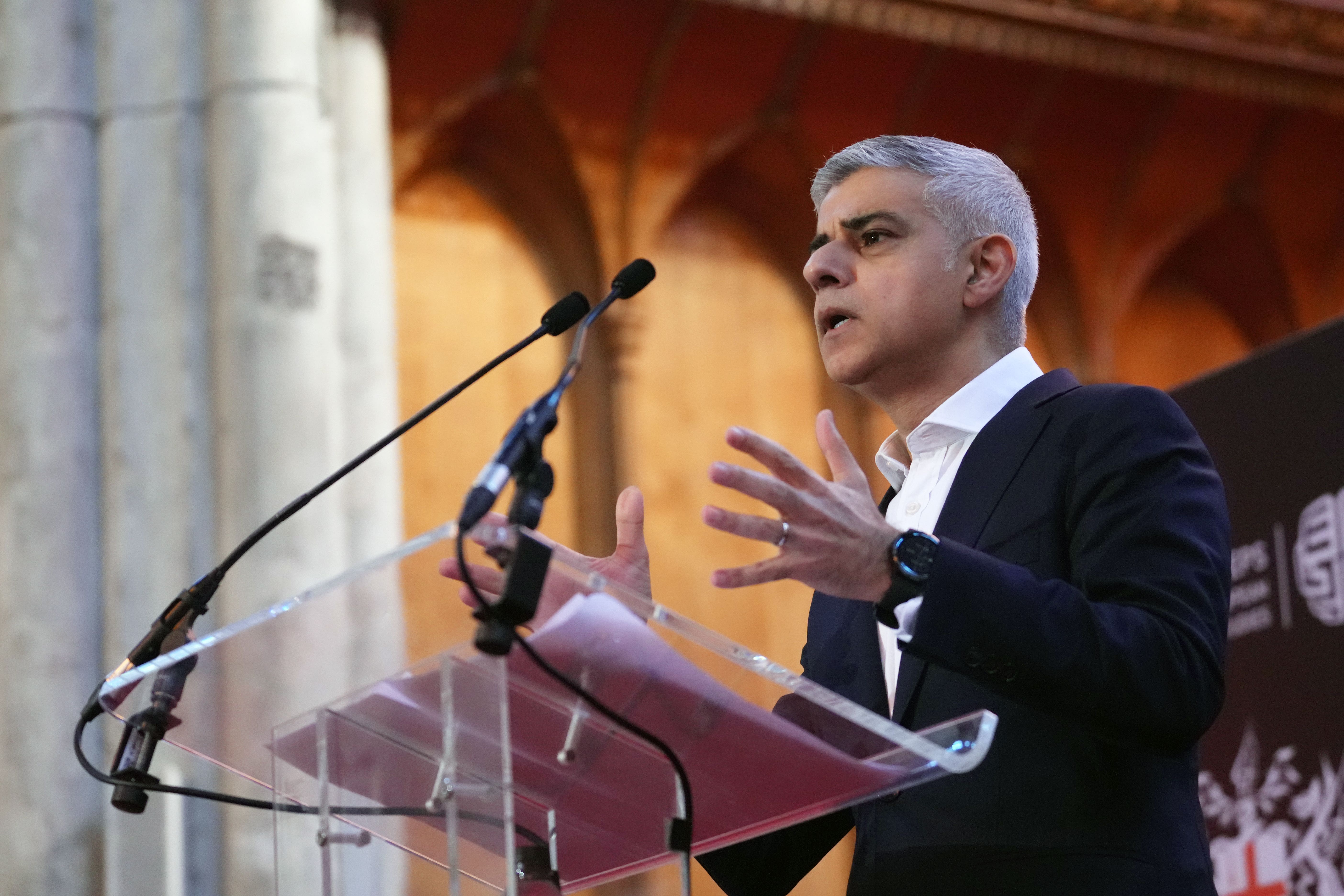Sadiq Khan calls for Brexit youth mobility deal with EU
London mayor wants new bespoke scheme or changes to visa rules for young Britons
Your support helps us to tell the story
From reproductive rights to climate change to Big Tech, The Independent is on the ground when the story is developing. Whether it's investigating the financials of Elon Musk's pro-Trump PAC or producing our latest documentary, 'The A Word', which shines a light on the American women fighting for reproductive rights, we know how important it is to parse out the facts from the messaging.
At such a critical moment in US history, we need reporters on the ground. Your donation allows us to keep sending journalists to speak to both sides of the story.
The Independent is trusted by Americans across the entire political spectrum. And unlike many other quality news outlets, we choose not to lock Americans out of our reporting and analysis with paywalls. We believe quality journalism should be available to everyone, paid for by those who can afford it.
Your support makes all the difference.Sadiq Khan has called for a mobility agreement with the EU so young Britons can move freely to and from European countries.
The Labour mayor of London upports either a bespoke new scheme on free movement for a certain age group, or changes to post-Brexit visa rules.
He criticised the Tory government’s “extreme hard Brexit” and even appeared to hit out at Labour’s “omerta”, or pact of silence, preventing the party from discussing potential economic reintegration with Brussels.
Mr Khan, who is seeking a third term in May’s mayoral election, said re-entering the customs union should be on the table when the Brexit deal with the EU comes up for review in 2024.
The capital has been particularly harmed by Brexit, he said in a statement first reported by the Observer.
“The government’s hard Brexit has done damage right across London, and it is young people who have been hardest hit in so many ways,” he said.

Mr Khan added: “Not only is it more difficult for young people to move abroad for work but the government’s wrongheaded decision to leave the Erasmus scheme has made it much harder for students to study abroad too.
“I’m clear that I’d be supportive of a youth mobility scheme, which would benefit us economically, culturally and socially.
“While the UK may no longer be part of the EU, London is and always will be a European city.”
The mayor wants young people to be able to study, travel and fill vacancies in key sectors of the economy such as hospitality, which has historically relied on EU workers and has faced staff shortages.
Earlier on Saturday, Mr Khan said “let’s have the conversation” about steps to align with the bloc.
He told the Fabian Society conference in London: “I’m not saying today we should rejoin the European Union. What I’m saying is that (shadow foreign secretary) David Lammy is on to something when he’s saying we should have a closer relationship with the European Union.”
He then suggested there is a code of silence meaning “you can’t talk about being close to the European Union, joining the single market, joining the customs union”.
He said “the economic cost of this extreme hard Brexit is huge”, pointing to a Cambridge Econometrics study which found that it has already cost the UK economy £140 billion and London £30 billion.
Mr Khan also said Rishi Sunak’s government is using its Rwanda deportation plan “in the same way they used Brexit – as a deflection of all the problems they’ve caused to our country”.
He called for the Labour Party to “speak up” on the benefits of immigration and diversity.
Also at the think tank’s gathering, shadow Northern Ireland secretary Hilary Benn touted the benefits of a stronger alliance with the bloc amid growing geopolitical uncertainty.
He said the EU will breathe an “audible sigh of relief” if Labour wins the general election later this year.
“I think eventually there is going to be a moment when we look at each other across the Channel and say ‘you know what, we’re still big and important trading partners, we’re still friends and allies, we are co-operating on foreign policy and security and we need to do more of that … so wouldn’t it make sense to have a closer relationship?’”
He said this is important for the economy and for “building alliances in a dangerous world”.
The Labour frontbencher pointed to conflicts in Ukraine, the Middle East and Sudan, tensions over Taiwan, the threat of climate change and the risk of a second Donald Trump presidency.
“We should come together with those who share our common values to defend those values in the face of these threats,” he concluded.
“The best way to protect your sovereignty is to work with others.”

Join our commenting forum
Join thought-provoking conversations, follow other Independent readers and see their replies
Comments